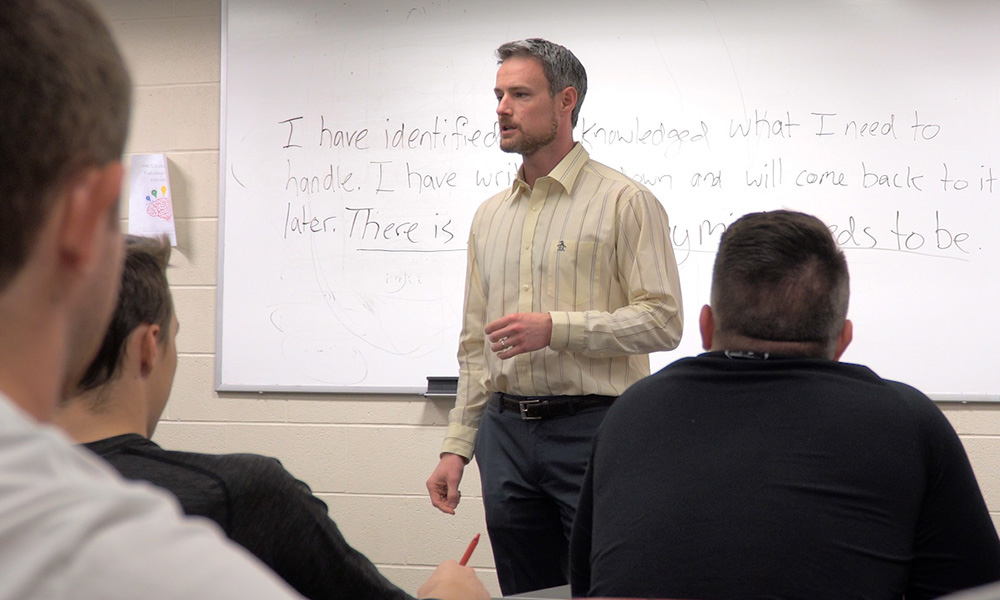Assistant Athletics Director Greg Lott is convinced the value of playing a sport goes way beyond the playing field. His ongoing research assesses the impact of participation in sport through an unexpected lens — by studying the emotional intelligence of student-athletes.
Lott began observing his fellow players when he was college athlete. “At some point in my career as an athlete, and most certainly later as a coach, I noticed that not all student athletes grew through their sport experience the same way I did,” he says.
“I saw incredible growth and maturation for some, while others were going through their experience pretty much unchanged.” These observations served as the impetus for his line of research — exploring sport’s role as a component of holistic education.
His first goal was to gain insight into whether participation in college athletics — especially in the context of the liberal arts — can help fulfill student-learning objectives like leadership.
“I assessed the educational impact of sport participation through measuring student-athletes’ development in emotional intelligence (EI),” says Lott. “These intrapersonal and interpersonal competencies are central to the liberal arts mission.”
Several interesting findings emerged. In fact, Lott’s findings are the first to provide evidence that a student might develop these EI competencies through their educational experience. They support the uniqueness and effectiveness of a liberal arts education. (All the study’s participants attended selective residential liberal arts institutions.)
“without a coach or a system that guides this work, student-athletes won’t gain as much from their sport as they could.”
“Students in my study as a whole increased their level of EI over a five-month period,” Lott says. The research indicated that EI development, in this particular context, occurs similarly between both student athletes and non-athletes. In other words, there was no extra effect of sport participation. He was able to put data behind his observation that development isn’t simply “caught” by participating in sport.
“It could be argued that because of the institutions attended by study participants, other experiences are serving the same educational capacity as sport,” he says. However, many researchers have shown that certain aspects of the sport experience are not duplicated elsewhere in society. He has turned to experiential learning theory to provide another explanation.
Lott says, “Some internal and external barriers can keep people from learning through an experience, no matter how powerful it is. I’m finding that within groups college athletes, consistent EI development is not likely to happen unless a person or a system is there to help facilitate the transformation of that experience.” That is to say, without a coach or a system that guides this work, student-athletes won’t gain as much from their sport as they could.
“My scholarship is currently focused on implementing a framework to engage sport more purposefully — with the goal of helping our student athletes consistently develop their EI,” he says.
This type of development aligns nicely with the liberal arts mission, but there’s more to it. “Substantial research has shown that increasing your EI is also related to improved academic achievement, student retention and mental health,” says Lott. “These are all things we care deeply about.”
“I am a firm believer in the power of sport. And I am passionate about helping student athletes transform through their college athletics experience.”
Greg Lott is the assistant athletics director at Denison University and an assistant professor of health, exercise and sport studies. Some of his published research is below.







